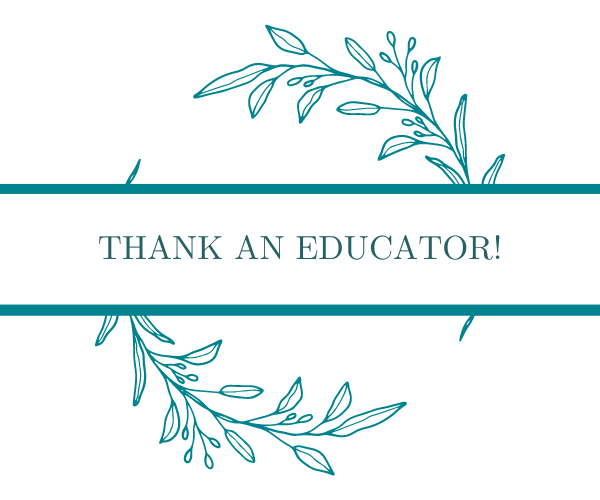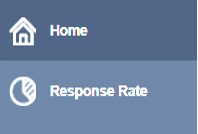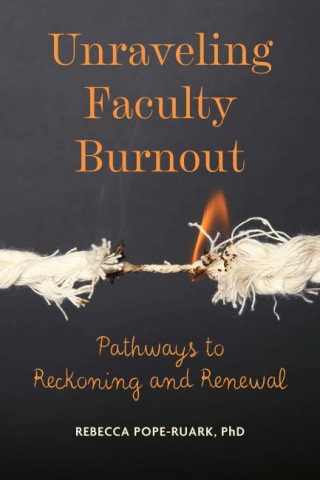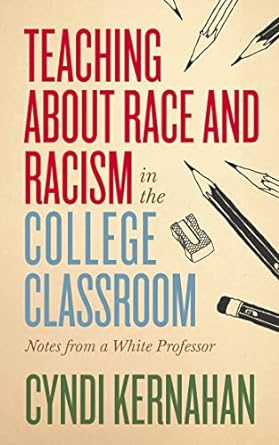May 2024 | Issue 10 | Volume 1 | Previous Issues
One Academic Year of VTSU
May is a month of transition in higher education, as we close out the academic year and celebrate our graduates. It also feels important to mark the conclusion of our first academic year as Vermont State University.
We have been amazed by engagement with the CTLI over the past year, while faculty have also been teaching new classes, establishing new cross-institutional departments, negotiating a new contract, forming a new Faculty Assembly (and committees), and building new relationships with university-wide staff. Thank you for your commitment to your teaching and supporting student learning!
Our preliminary data show that 183 faculty participated in CTLI workshops or programs in the past academic year covering a range of topics including:
Programs
- Intro to F2F+ Teaching
- New Faculty Orientation
- DEI Outcomes in the Gen Ed
- Open Educational Resources
- Teaching with AI
Workshops
- Facilitating Engaging Class Discussions
- Culturally Relevant Teaching Practices
- An Introduction to Generative AI – Implications for Teaching & Learning
- Accessible Communication & Resources
- Strategies for Engaging in Difficult Dialogues in the Classroom
- The Art and Learning Science of Vibrant Discussion Boards
Book Groups
- Cheating Lessons: Learning from Academic Dishonesty
- The Norton Guide to Equity-Minded Teaching
Departmental Sessions
- Backward Design & Writing Effective Learning Outcomes
- Designing Aligned Assessments
- Planning Relevant Learning Activities
- Providing Meaningful Feedback
- Engaging with Difficult Students in the Classroom
We look forward to continuing to work with faculty and staff in the coming years to build on these efforts to strengthen the curriculum and learning experiences for our students.
Teaching with AI

Are you interested in learning more about ChatGPT and other artificial intelligence (AI) tools?
The Center for Teaching & Learning Innovation has partnered with the Auburn University Biggio Center for the Enhancement of Teaching and Learning to provide VTSU faculty members with an opportunity to participate in the award-winning Teaching with AI, a fully-online, self-paced, asynchronous course especially designed for higher education faculty.
The course, which includes content focused on the technical, pedagogical, theoretical, and ethical implications of AI, should be beneficial to beginners as well as more advanced users of this emerging technology.
What are the goals of the course?
- Learn about AI and its implications for teaching and learning in higher education – especially those relating to academic integrity;
- Consider examples (good and bad) of how to redesign courses for AI;
- Experiment with AI tools, redesign assignments, and get feedback;
- Engage in conversations about your thinking on topics related to AI in the college classroom;
- Access a (growing and evolving) repository of research on teaching with AI;
- Engage your department colleagues in the conversation by modeling best practices and sharing your learning to ensure students in your program have a consistent, comparable learning experience no matter who is leading the class.
What is the time commitment and what do I earn by completing the course?
- The total time for an engaged learner to complete all eight modules is between 10 to 15 hours.
- The VTSU licenses expire on April 1, 2025.
- If you complete one assignment at the end of each module, you will earn an AI Explorer digital badge to add to your CV.
How do I sign-up?
The CTLI has purchased licenses for 100 VTSU faculty members, available first-come, first-served. Please submit the form below to express interest. As long as licenses are available, your login credentials will be created and your enrollment into the course will be initiated. Further instructions and correspondence will be emailed to your Vermont State email address.
Thank an Educator – Submission Form Open Until May 10

The VTSU Thank an Educator program provides a way for undergraduate and graduate students as well as alums to send a note of thanks to educators who have had a meaningful impact on their education and lives. After grades are due, the CTLI then sends out the personalized messages to each recipient; students may remain anonymous or identify themselves.
For Spring 2024, we are thrilled that we have already received over 140 submissions (and more come in each day) from students and alums for staff and faculty educators on all five of our campuses! We’ll be sending out these messages after grades are due on May 20 from the CTLI email account.
The form is open until May 10 (also linked on the Canvas homepage). If you hear students comment about someone who’s had a positive influence on them (in classes, in advising, in casual conversation), please encourage them to participate in the Thank an Educator Program, by letting them know the significant impact that expressions of gratitude can have on professionals in education.
The comments students are submitting underscore the impact of the day-to-day work that ALL educators engage in at VTSU. From the CTLI, we thank YOU for the daily efforts you make to support all your students.
All About Open Education with Robin DeRosa

On Friday, April 26 from 12:30-2:00pm, Robin DeRosa, delivered a keynote address for VTSU staff and faculty titled “Teaching Toward an Open Future.”
Summary: Robin set the stage for her presentation by promoting higher education as not only a vehicle for self improvement, but as a public good that benefits society as a whole, before delving into the financial challenges impeding the success of today’s students, particularly those from marginalized populations. In many cases, these students are committed to paying the cost of tuition, but aren’t prepared for the expenses associated with fees and the escalating cost of course materials. As a strategy for reducing cost and improving equity, Robin advocated for the use of Open Education Resources (OER) and provided attendees with ideas for getting started.
More broadly, she discussed open pedagogy as part of the process of viewing education through a learner-driven lens in which student collaboration and connectedness play a vital role. In doing so, Robin stressed the importance of incorporating social justice initiatives as a hedge against the negative power dynamics that continue to persist in higher education.
For members of the faculty and staff who were unable to attend, a recording of the session as well as a link to Robin’s slide deck have been shared below. Robin was engaging, passionate about open education, and we hope you have an opportunity to draw some new ideas and perspectives from her presentation!
Presentation Slides: Teaching Toward an Open Future
Summer Reading, Watching, & Listening Recommendations
Recommendations from the CTLI
Unraveling Faculty Burnout: Pathways to Reckoning and Renewal by Rebecca Pope-Ruark
Dr. Pope-Ruark shares her own journey with a diagnosis of burnout, identifying four pillars of resilience to burnout with recommendations for how faculty can foster these pillars. Interviews with faculty and summaries of studies are interwoven with helpful reflective prompts making this a practical book for all faculty.
From course planning to inclusive practices to engaging students with course content, Dr. Kernahan draws on scholarship and her own experiences teaching courses about race at a predominantly White institution (PWI) as a White professor. This is a great read for any VTSU faculty incorporating DEI and social justice outcomes in their courses, with examples of instructor preparation, student reactions, and facilitation techniques.
At VTSU, the word “transform” may have lost some meaning because of overuse, but hopefully “transformative education” is still an important goal. The authors posit that faculty are well-positioned to help students feel empowered with knowledge and skills to apply their education in enacting positive social change. This interactive text coaches faculty through course design, but it is not intended to necessarily be read in a linear fashion; for example, if you are interested in strengthening assessments, Chapter 8 will be useful. Throughout the text, readers are encouraged to maintain a focus on supporting all learners through culturally affirming design and teaching choices.
Recommendations from Multilingual Student Services
Dr. Mary Dinh, Assistant Director of Multilingual Students Services, recently compiled lists of books and films in the VTSU libraries focusing on including multilingual multicultural students in higher education contexts, ranging from in-class activities to assessment methods. Every resource on each list includes a description. In the 2023-24 academic year, 729 VTSU students self-reported as multilingual (14.39% of the student population).
Mary is also available to speak with faculty interested in incorporating strategies for supporting multilingual learners. Email Mary Dinh to connect.
Dates to Remember from Institutional Research
Survey on Factors Inhibiting Student Academic Success – due May 10
This survey gathers faculty perceptions on factors that inhibit student academic success, helps us understand the challenges students face, and how we can better support them. The data collected will be used to enhance grant writing efforts and provide evidence of faculty priorities and student needs. Access the Survey on Inhibiting Student Academic Success by May 10.
Course Evaluations – generally due May 12 (from students)
The course evaluations for Spring 2024 semester are still ongoing. For full-term courses running from January through May, the evaluations opened on Monday, April 22nd, and will remain accessible until Sunday, May 12th.
Courses scheduled for 7 weeks or less will see evaluations open once 85% of the course duration has been completed. They will then close on the last day of the respective course.

- Log into Blue using your login credentials: VSC-Blue Course Evaluations (bluera.com)
- Under the Home tab, you can view the evals that are currently open.
- Under the response rate tab, you can view the response rates for your course(s).
Please encourage students in your class to complete their course evaluations. Students receive email reminders and can also access the course evaluation in Canvas under the Home tab, they can click the option “Course Evaluations”.
Faculty Survey of Student Engagement – due May 13

The Faculty Survey of Student Engagement will close on May 13th. Please take the time to complete this survey, as it closely parallels the NSSE (student engagemnet) survey that many of our students have completed, and most importantly, it will help us identify areas of strength and areas for improvement.
You can search for any of the email reminders that were sent on the dates listed below from FSSE.
Sender Email: FSSE Survey <noreply@qualtrics-survey.com>
Subject: Feedback on Student Engagement
Survey Invitation Email: Tuesday, March 26
Survey Reminder 1: Monday, April 1
Survey Reminder 2: Thursday, April 4
Survey Final Reminder: Wednesday, April 10
Questions?
If there are any issues with any of these surveys, please feel free to directly reach out to Irene Irudayam, AVP, Institutional Research and Planning. Thank you so much for your support!
VSCS Libraries Update
Summer Hours
We’re less than a month away from the end of the semester and our libraries will be transitioning to summer hours. Summer hours will begin on May 20th. Libraries will be open from 8am-4pm across the system. However, chat reference will continue to be available 24 hours a day.
VSCS Libraries Virtual Displays
The VSCS Libraries values the diverse perspectives that contribute to America’s rich history. Each month, we curate book displays across all campus libraries and online platforms to showcase resources available to you. In April, we celebrated Arab American Heritage Month, and in May, we are honoring Asian American, Native Hawaiin & Pacific Islander (AANHPI) Heritage Month. Explore our in-person displays at any of our five libraries or visit our virtual display at: https://libraries.vsc.edu/search/virtual-displays
Our First Topic Guide: Artificial Intelligence (AI)
With AI rising in popularity, two of our librarians have put together an informational topic guide on using, citing, and assessing AI resources found online. You can also find recommended reading material. Check out our AI topic guide here: https://libraries.vsc.edu/search/topics/AI/
Help Us with the Library’s Collection
We’re constantly evaluating our collection and are eager to incorporate your recommendations. Please contact your liaison librarian with any book suggestions in your subject area. Your input is valuable to us!
Student Success Updates
The Student Success Leads team is grateful to faculty on all campuses for taking the time to meet with us over the spring semester. The goals of these meetings were to introduce the team to faculty, discuss Student Success, hear feedback, and answer questions. Several themes emerged from the conversations, including a need for greater understanding of how Student Success operates and where students and faculty can find resources as well as some common questions. The linked document below responds with resource information and FAQs.
All the best for the end of the semester and Commencement,
Jen, Sara, Deanna, Oyibo, Jamia, and Kelley
Upcoming Retreats
VSCS Retreat: Artificial Intelligence

Mark your calendar, now, for a VSCS-wide retreat focused on Artificial Intelligence on Thursday, August 8 at the Randolph Campus. This event is open to all VSCS faculty and staff and sponsored by the Teaching and Learning with Technology (TLT) system-wide committee. More details will be forthcoming about speakers and sessions.
Summer Gathering: CNX1 Faculty

Please save the date for an (optional, but likely stipended) kick-off gathering, BBQ, and conversation for CNX1 instructors on Thursday, August 15 from 10am-3pm. Plans are still underway, but the CNX1 Steering Committee intends to hold it in-person on the Randolph Campus. Details will be shared with CNX1 faculty soon.
Summer and Fall 2024 – Syllabus Templates Available
Each semester, the CTLI publishes an updated syllabus template, to stay current with policies, context, and the dates of the semester. No matter what modality you’re teaching in, the syllabus can be edited to meet your needs. While the template appears to be lengthy, it will become much shorter when you tailor it to your course (deleting the highlighted language, which is instructional for you).
The Summer and Fall 2024 Syllabus Templates can be previewed and downloaded from the CTLI website.
If you are reusing an old syllabus, be sure to match these updates from the new templates:
- The Credit Hours and Student Work subsection (under the “About the Course” section) was updated to reflect the new VTSU Credit Hour policy (passed by the Faculty Assembly in March 2024).
- A subsection on Artificial Intelligence was added to the Class Expectations section – we encourage you to create course-level expectations either by writing your own policy or co-creating one with your students.
- The Office of DEISJ was added to the Inclusivity & Equity subsection.
- The schedule of activities was updated with relevant 2024 dates, including space for you to fill in important cut-off dates for adding, dropping, and withdrawing.
The goals of the syllabus templates are twofold:
- To make your life easier – you don’t have to look up the dates of the semester or make sure your syllabus reflects current policy.
- To create consistency for students – consistent organization of syllabi, Canvas course spaces, assignment sheets, and other teaching materials reduces cognitive burden (extraneous cognitive load) for students, allowing them more capacity to focus on the important cognitive task of learning. There are additional applications of cognitive load theory for teaching.
Given this second goal of consistency, we also encourage you to adopt the CTLI Canvas Template. This template allows you full freedom to customize the content of the course and focuses exclusively on the organization and structure of the course. The more classes that adopt the template, the easier it is for students to find what they need quickly, reducing frustration and emphasizing class engagement.


